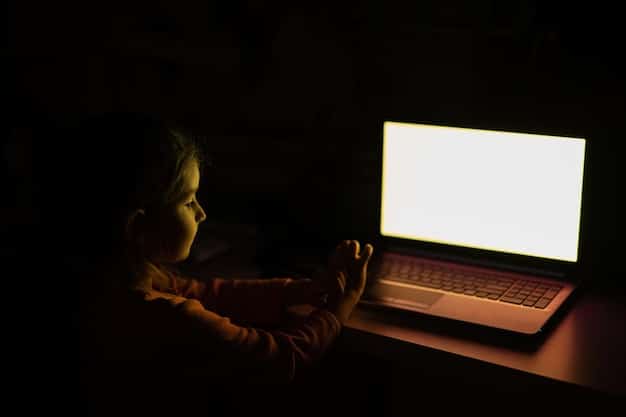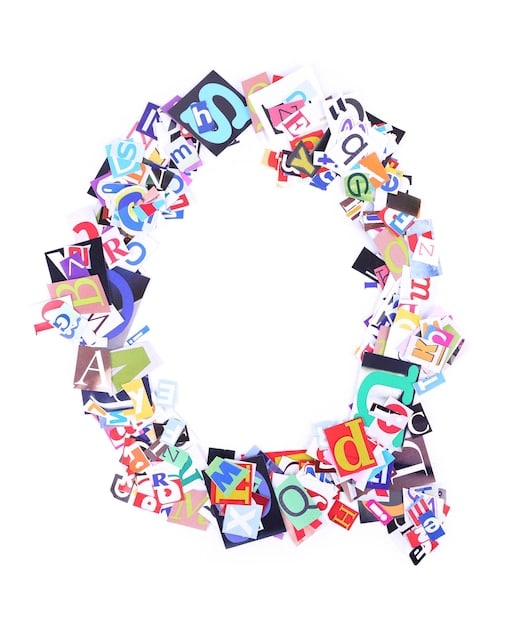The Dark Side of Virality: Mental Health Impact of Online Fame

The dark side of virality encompasses the mental health challenges individuals face when thrust into sudden online fame, including heightened anxiety, depression, and a distorted sense of self.
The internet has made overnight fame a real possibility for many. But while achieving viral status might seem like a dream come true, the sudden exposure and intense scrutiny can have a significant impact on mental health. This article explores the dark side of virality: exploring the mental health impact of online fame, highlighting the challenges of navigating newfound attention and maintaining well-being in the digital age.
Understanding the Allure and Reality of Virality
Virality, the phenomenon of content spreading rapidly and widely across the internet, often promises exposure, opportunities, and even financial gains. However, the reality behind the screen can be drastically different, especially when considering the individual’s mental health.
The pursuit of virality is often fueled by a desire for validation and recognition. Creating shareable content can be both a passion and a strategic endeavor, but the overnight stardom it promises often clashes with the reality of being constantly in the public eye.
The Appeal of Instant Fame
The internet offers a unique platform where anyone can achieve widespread recognition with a single post, video, or tweet. This allure of instant fame is a powerful motivator, driving content creators to strive for that viral moment.
The Harsh Realities Behind the Screen
While virality can bring positive attention, it also exposes individuals to criticism, negativity, and relentless scrutiny. The pressure to maintain that newfound fame, coupled with the fear of losing it, can take a significant toll on mental well-being.
- The double-edged sword of fame.
- Balancing public image against personal identity.
- Navigating the constant need for validation and attention.

In summary, the allure of viral fame often overshadows the potential mental health challenges that come with it. Understanding both the appeal and the reality of virality is key to preparing for and managing the impact of online fame.
The Psychological Impact of Sudden Online Fame
Sudden online fame can be a disorienting experience, leading to a host of psychological challenges. From increased anxiety and depression to identity crises and social isolation, the mental health impact can be profound and long-lasting.
The instantaneous nature of virality means that individuals are often unprepared for the level of attention they receive. This lack of preparation can exacerbate existing mental health issues and create new ones.
Anxiety and Depression
The constant scrutiny and pressure to maintain a positive image can lead to increased anxiety and depression. Negative comments and online harassment can be particularly damaging, eroding self-esteem and creating a sense of vulnerability.
Identity Confusion
When an individual’s identity becomes closely tied to their online persona, it can lead to confusion and a sense of disconnect from their true self. The pressure to conform to public expectations and maintain a consistent image can be overwhelming.
- The blurring of lines between online and offline identity.
- The pressure to maintain a curated image.
- The challenge of staying authentic in the face of public scrutiny.
In conclusion, understanding the psychological impact of sudden fame is crucial for those who experience it. The sudden transition from obscurity to online stardom often leads to anxiety, confusion, and a lack of connection to one’s true self.
Navigating Online Scrutiny and Criticism
One of the biggest challenges of online fame is dealing with the inevitable scrutiny and criticism that comes with it. Learning to manage negative comments, online harassment, and public backlash is essential for protecting mental health.
The anonymity of the internet often emboldens people to say things they would never say in person. This can lead to a barrage of negative comments and messages that can be difficult to ignore.
Developing Coping Mechanisms
It’s important to develop healthy coping mechanisms for dealing with online criticism. This might include setting boundaries, limiting exposure to social media, and seeking support from friends, family, or a therapist.
Avoiding the Comparison Trap
Constantly comparing oneself to others online can lead to feelings of inadequacy and low self-esteem. Refocusing on personal strengths and accomplishments, rather than measuring against others, can help mitigate these negative emotions.
- Setting boundaries on social media use.
- Practicing self-compassion and positive self-talk.
- Seeking support from friends, family, or a therapist is indispensable.
In brief, navigating online scrutiny isn’t just about managing public perception; it’s about preserving one’s mental health and sense of self. It involves strategic management of digital interactions, but also robust psychological support.
The Role of Social Media Platforms
Social media platforms play a significant role in both the creation and management of online fame. While they provide a stage for reaching a global audience, they also contribute to mental health challenges through cyberbullying, comparison culture, and privacy concerns.
Understanding the impact of social media on mental health is the first step in mitigating its negative effects. By being mindful of how these platforms influence our thoughts and feelings, we can make more informed choices about our online behavior.
Cyberbullying and Harassment
Social media platforms can be breeding grounds for cyberbullying and harassment. Anonymous profiles and the lack of face-to-face interaction make it easier for people to engage in hurtful and abusive behavior.
Privacy Concerns
The constant collection and sharing of personal data on social media platforms raise serious privacy concerns. This can lead to feelings of vulnerability and paranoia, especially for those who are already experiencing anxiety and stress.

In conclusion, while social media platforms offer unprecedented opportunities for connection and self-expression, they also pose significant risks to mental health. It is essential for individuals to be aware of these risks and take steps to protect their well-being.
Strategies for Protecting Mental Health in the Spotlight
For those who find themselves in the throes of online fame, it is essential to develop proactive strategies for safeguarding and preserving their mental health. Simple acts like disconnecting from social media, setting strict boundaries and building a support network can yield high dividends to protect their mental health.
These strategies are not just about reacting when things go wrong, but developing healthy digital habits.
Building a Support Network
Having a strong support network of friends, family, or a therapist can make all the difference in navigating the challenges of online fame. These individuals can provide emotional support, offer a fresh perspective, and help maintain a sense of normalcy.
Prioritizing Self-Care
Making time for self-care activities, such as exercise, meditation, or spending time in nature, is crucial for managing stress and maintaining well-being. These activities can help individuals reconnect with their true selves and recharge their emotional batteries.
- Establishing clear boundaries between online and offline life.
- Practicing mindfulness and gratitude to enhance well-being.
- Seeking professional guidance from mental health specialists as needed.
In simple language, mental wellbeing is not just the absence of distress but the presence of active strategies. It requires being proactive, not merely reactive to online interactions.
Real-Life Stories: Virality and Its Aftermath
Examining real-life stories of individuals who have experienced viral fame can provide valuable insights into the mental health challenges and coping strategies involved. These narratives offer concrete examples of the highs and lows of online stardom.
Hearing from those who have walked this path can help others feel less alone and more prepared to navigate their own experiences with virality.
The Successes and Failures
Some individuals have successfully leveraged their viral fame into long-term careers, while others have struggled to maintain their momentum and well-being. Analyzing these successes and failures can reveal key factors that contribute to positive or negative outcomes.
Lessons Learned
Each viral story offers valuable lessons about the importance of self-awareness, resilience, and support. Understanding these lessons can help individuals approach online fame with a more informed and proactive mindset.
Sharing personal narratives helps to de-romanticize the notion of virality. Fame might be fleeting, and it’s important that people understand that.
| Key Point | Brief Description |
|---|---|
| 🌟 Sudden Fame | The rapid shift to popularity can be psychologically overwhelming. |
| 🛡️ Handling Criticism | Effective strategies are vital for managing online hate and feedback. |
| 🤝 Support System | A reliable network is essential for emotional and mental stability. |
| 🌱 Self-Care | Prioritizing self-care can help managing stress and staying balanced. |
Frequently Asked Questions
▼
The risk of increased anxiety, depression and distress can weigh heavily on a person. Cyberbullying and invasive scrutiny are also major concerns.
▼
Set boundaries by limiting exposure, blocking abusive users, and remembering that online comments are not always representative of reality.
▼
It’s very important to prioritize self-care because you’re constantly under pressure to do great things. Setting aside time for mental wellbeing helps you to maintain stability.
▼
They facilitate cyberbullying, enable the spread of misinformation, and foster environments that promote constant social comparison, all detrimental to mental health.
▼
Consult mental health professionals, therapists, or counselors specialized in managing stress, anxiety, and issues related to social media and public attention.
Conclusion
Navigating the complexities of online virality requires a proactive approach to mental health. By understanding the potential pitfalls, developing smart management techniques, and fostering robust support framework can people successfully keep the digital spotlight without losing themselves.





